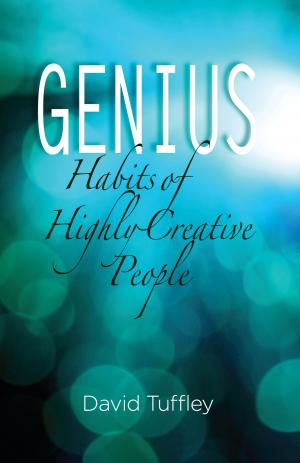Being Happy: Part 4 Cultivating Virtue
Nonfiction, Health & Well Being, Psychology, Applied Psychology, Self Help, Self Improvement, Motivational| Author: | David Tuffley | ISBN: | 9781310465185 |
| Publisher: | Altiora Publications | Publication: | May 4, 2015 |
| Imprint: | Smashwords Edition | Language: | English |
| Author: | David Tuffley |
| ISBN: | 9781310465185 |
| Publisher: | Altiora Publications |
| Publication: | May 4, 2015 |
| Imprint: | Smashwords Edition |
| Language: | English |
Being Happy: Cultivating Virtue is a short, practical how to guide for people wanting to cultivate a happier state of mind using the principles outlined in the pioneering work of Christopher Peterson and Martin Seligman whose 2004 book Character Strengths and Virtues is considered a classic.
Peterson and Seligman did a broad-based cross-cultural review of what constitutes human virtue. They drew on a range of academic disciplines – education, management, consulting, psychology, coaching, and others. They also consider the major religious and philosophical traditions of the past 2,500 years. In this way, the authors were able to identify the core underlying virtues that have always been there, albeit described in different terms according to the culture and the times.
Peterson and Seligman’s approach does not prescribe behaviour, it simply describes what the behaviour looks like, leaving an individual scope to devise their own interpretation.
Being Happy: Cultivating Virtue paints a portrait of what each of the virtues looks like. It explains what they are and how they can apply in your life.
Use this word portrait to model your own thinking and behaviour. Over a period of time, months and years, if you persist with your modelling, you will gradually transform yourself into the person you have been imagining.
It is important to be patient and persistent. Nothing is accomplished overnight. But as you practice the virtues, you will perhaps notice a steady transformation into a happier state of mind, one that is not dependent on fleeting pleasures, but one that is founded upon something much more substantial.
Being Happy: Cultivating Virtue is a short, practical how to guide for people wanting to cultivate a happier state of mind using the principles outlined in the pioneering work of Christopher Peterson and Martin Seligman whose 2004 book Character Strengths and Virtues is considered a classic.
Peterson and Seligman did a broad-based cross-cultural review of what constitutes human virtue. They drew on a range of academic disciplines – education, management, consulting, psychology, coaching, and others. They also consider the major religious and philosophical traditions of the past 2,500 years. In this way, the authors were able to identify the core underlying virtues that have always been there, albeit described in different terms according to the culture and the times.
Peterson and Seligman’s approach does not prescribe behaviour, it simply describes what the behaviour looks like, leaving an individual scope to devise their own interpretation.
Being Happy: Cultivating Virtue paints a portrait of what each of the virtues looks like. It explains what they are and how they can apply in your life.
Use this word portrait to model your own thinking and behaviour. Over a period of time, months and years, if you persist with your modelling, you will gradually transform yourself into the person you have been imagining.
It is important to be patient and persistent. Nothing is accomplished overnight. But as you practice the virtues, you will perhaps notice a steady transformation into a happier state of mind, one that is not dependent on fleeting pleasures, but one that is founded upon something much more substantial.















